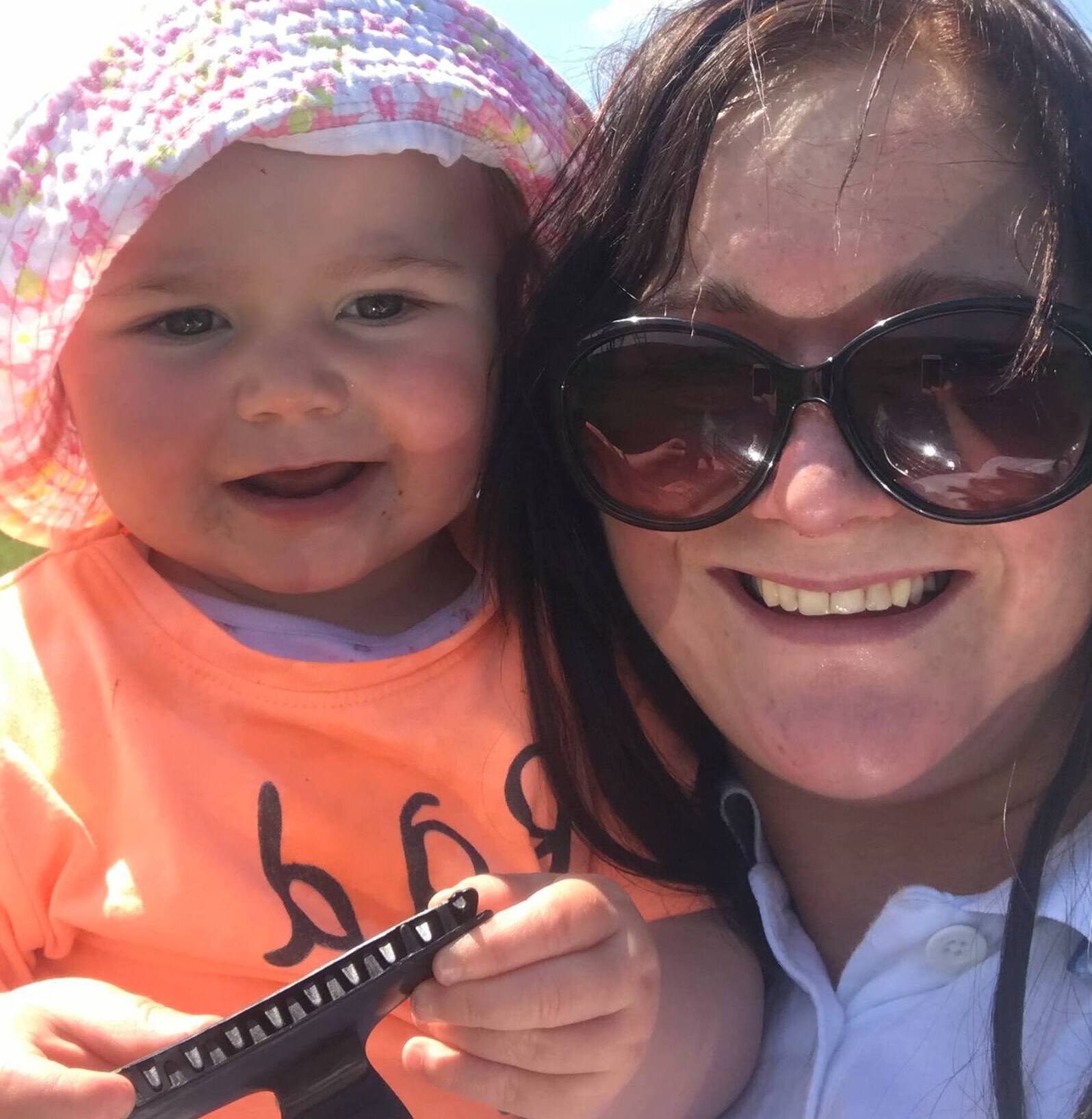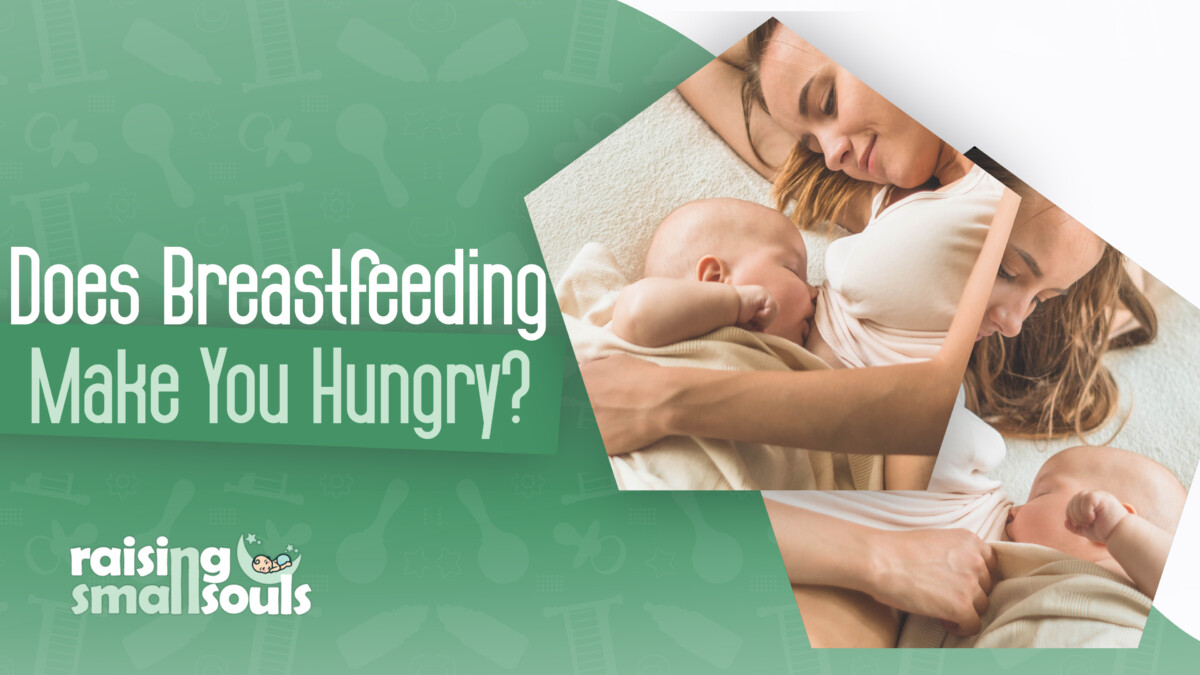As we all know already that no replacement baby formula can compare to the mother’s milk for her baby.
There are more benefits from breastmilk since the mother’s body produces the milk content according to her baby’s needs. Nothing more and nothing less.
But despite that, a fed baby is the healthiest and happiest baby, whether it is fed by formula or breast milk. As long as the baby is healthy and thriving nothing else matters.
As we said above, breast milk is the healthiest food for a newborn baby, but can you overfeed a breastfed baby?
That’s the important part we are going to discuss in today’s article.
Main Points
- The chances to overfeed a breastfed baby are very low.
- Overfeeding happens more with bottle-fed babies or a combination of a bottle and breastfeeding.
- The baby can feel when he is full and will stop nursing on his own.
- Don’t base your feeding routine on charts and numbers. No two babies are the same.
- A mother’s body is designed to recognize her baby’s needs instinctively and produce the milk amount/content accordingly.
- Burping, spitting, and vomiting are not always signs of overfeeding.
- Some babies have acid reflux which resembles overfeeding.
So, is there a possibility to overfeed your breastfed baby?

No, you cannot overfeed your breastfed baby. The mother’s body is designed to meet her baby’s needs and produce enough quantity of milk as the baby’s body requires.
It is very hard to reach the point of overfeeding your breastfed baby.
How does breastfeeding work?
Well, a woman’s body is formulated in such a way to be able to produce breast milk for her baby. Her body is so in tune with the baby that it knows even when the baby is feeling sick.
It detects it from the baby’s saliva during the nursing process. So, when the mother’s body realizes the baby might be getting sick or dehydrated, it starts to produce milk according to the baby’s needs.
The milk will contain more antibodies during that period to fight off any infections or viruses.
The contents as well as the amount of milk the mother produces depend on the state of her baby and the frequency of the feedings.
If a mother wants to increase her milk production, she just needs to drink more liquids and breastfeed her baby more often.
As you feed your baby more often, this signals to the mother’s body that the baby needs more milk.
Also, a role in milk production plays the food the mother eats. If the mother eats more nutritious and versatile food, milk production is going to be better and richer.
How much should a baby drink?
No two babies are the same. You can’t base the amount of milk your baby drinks, or the frequency of breastfeeding on some charts.
Each baby is different and has different needs. When I had my son, the doctors would recommend I give 60 ml of milk every two hours to my son.
But for my baby, that was not enough. He would continue to cry and get angry because he was still hungry.
So, I decided to breastfeed him more often, increasing the amount of milk, along with the duration of the feedings.
He drank double the amount they recommended and would sleep peacefully through the night without fussing or waking up every 15 minutes.
He was calmer, happier, thriving, and healthy. If 120 ml is enough milk for one baby, it might be too much for another baby.
So, never base your breastfeeding on any charts, just focus on your baby’s reactions. The baby is going to show you when his tummy is satisfied and has had enough.
But yeah, overfeeding can cause discomfort and fussiness, similarly having a second child brings its own challenges. It’s important to weigh the pros and cons, and to be prepared for the challenges that come with it.
When can you overfeed a breastfed baby?
Although it is not common, in some situations, it is possible to give your baby too much milk.
If for some reason you give your breastmilk to your baby with a bottle you might happen to overfeed him/her. The baby can not control the flow of the milk from a bottle.
The milk flows faster and the baby can unfortunately get more milk than it needs. And that might cause him tummy aches.
The other way to overfeed your breastfed baby is if you have a baby that likes to nurse for comfort and not just for hunger. The baby will want to be nursing most of the time, even when they are full.
Some babies love to nurse until they fall asleep on their mother’s breast. They see the mother as a comfort cushion, and it helps them calm down and fall asleep faster.
And even though the thought is adorable, it can cause problems with overfeeding because the baby is not nursing out of hunger.
When I would notice that my son would start asking to be breastfed when he needed comfort, I would pick him up and nurse him but just for a short period.
Just so he could feel the warmth and smell of his mommy and calm down.
I would not recommend letting your baby cry it out or calm down by himself/herself. It is not a healthy strategy for your baby’s emotional development.
How can you know if a baby is overfed?

The baby will become more restless. You will notice it has tummy aches since it will try to raise its legs towards its tummy.
It will frequently spit up after feeding, or even vomit the whole milk he has drunk. The baby might be gagging, choking, spitting up, or burping multiple times.
Also, the gassiness will cause him tons of pain. But the vomiting, the spitting up and the burping do not always indicate that the baby is overfed.
Some babies have acid reflux and might have trouble digesting the milk. They will also have fits of vomiting, spitting, gassiness, and tummy aches.
The most common way for this to happen is when a baby is bottle fed as we mentioned above. Because of the fast flow of the milk, the baby can not control how much milk and how fast it is consumed.
Along with the milk he gets air bubbles in his stomach, that’s a major reason for the gassiness, burping, and tummy aches.
When the baby is nursing from his mother’s breast the milk flow is controlled and regulated. There is no way for air bubbles to get into your baby’s tummy while breastfeeding if you and your baby have achieved mastering the correct breastfeeding position.
The burping part is normal if it happens just once after a baby has been fed. You must burp your baby after each feeding so that the air bubbles come out and don’t cause him problems.
Another thing worth knowing is that using a baby swing for extended periods can also cause discomfort or pain, and may potentially cause damage to a baby’s developing body
How to stop overfeeding your baby?
Allow your baby to feed on the first breast he latched on to for as long as he wants to.
Then take a break, cuddle, and play with the baby. After some time try to offer the other breast. If the baby takes the breast, do not stop him, and if he refuses the breast that means he is already full.
If you are feeding your baby via a bottle, you should give him a bottle that has an antiacid reflux feature. It will help to keep the flow of the milk less aggressive, so you have fewer chances of overfeeding.
Keep in mind that not always a crying baby indicates hunger. The baby might have other needs or is just craving your attention and touch. So do not always turn to feed as a resolution when the baby is crying.
Also, look for clues that your baby gives you to indicate they are full. They will relax, stretch their arms and legs, and start dosing off to sleep. That is when you should stop nursing.
Similarly, a sudden dislike of the car seat can be a sign of discomfort or pain, such as colic or reflux, which may be related to feeding issues.
Final words
Babies are capable to feel that they are full and satisfied. So, the chance of overfeeding is extremely low.
That is why my recommendation is that you keep breastfeeding your baby as often as the baby wants to feed.
And feed him as long as he wants to. You can do more damage if the baby is left hungry and neglected than if you feed one more session than he usually eats.

Hi! I am Kimberly, living in Huntington, NY. I’ve raised 4 beautiful children, and i started this blog to help new and upcoming mothers with parenting.

